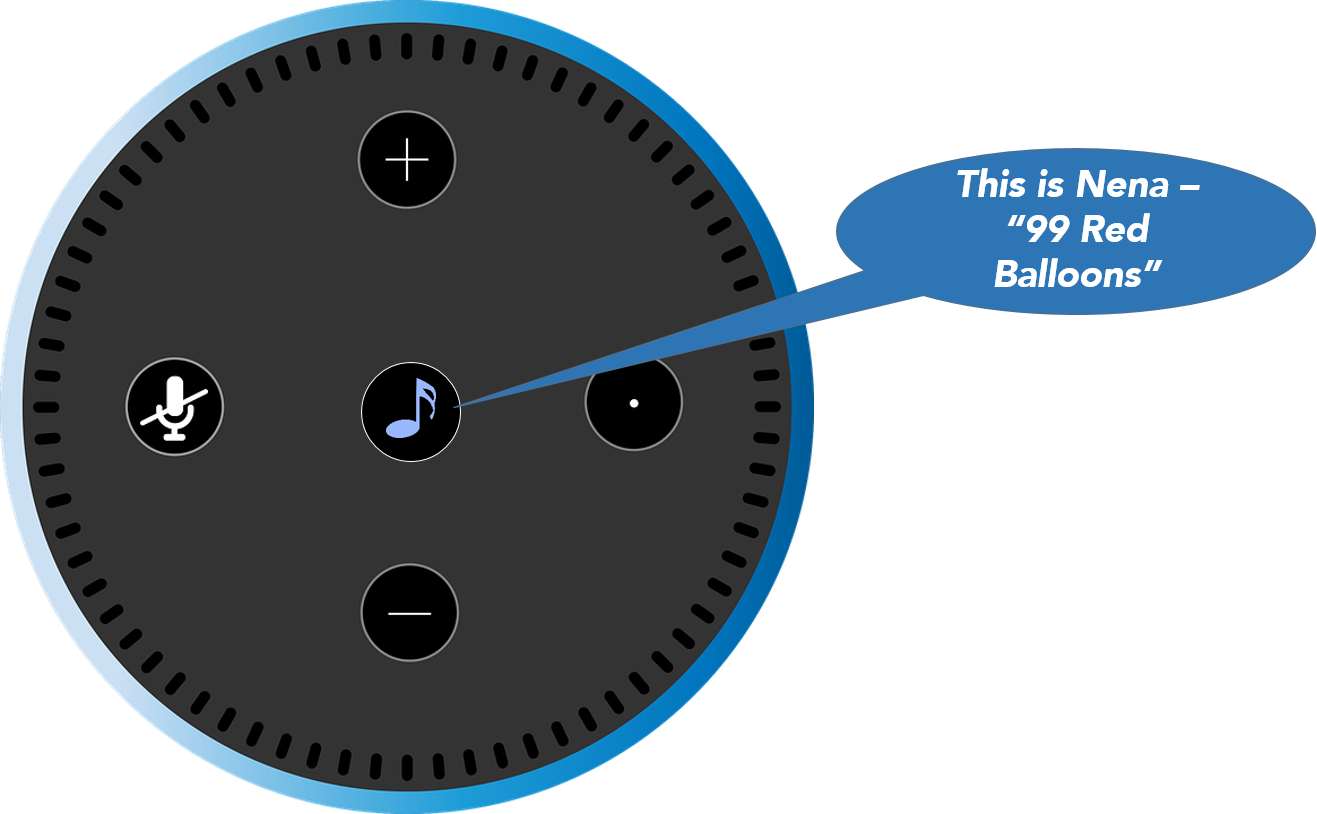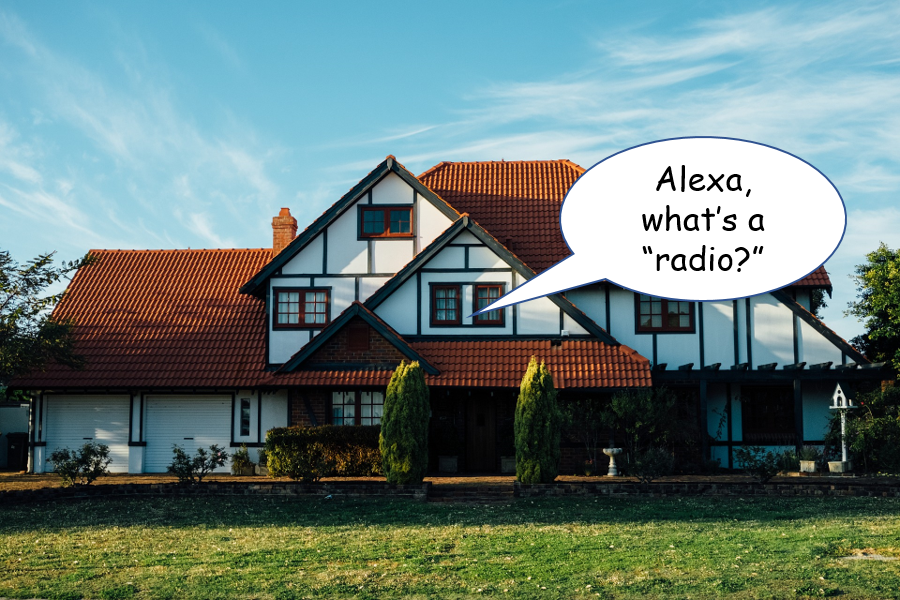
While we were all oohing and aahing about all those podcast deals generating millions of dollars these past couple of weeks, the brainchilds in Seattle were tweaking Alexa.
And in an effort to make the voice of the Amazon more human, more helpful, and more DJ-like, a new feature – think of it as a benchmark – was added to Alexa’s repertoire earlier this week.
Song ID.
Now you can simply change an Echo setting, and Alexa will frontsell every song it plays.
Yes, that’s a job that DJs used to always do. But as “More music/less talk” dictates have permeated radio over the past couple decades, it has become more difficult to know the artist and title of songs you’re hearing.
It’s still a complaint in focus groups, even though many “connected car” systems are supplying this information via RDS or HD Radio. More and more stations are providing playlist information after the fact or in real-time and their websites or streaming players. And then there are apps like Shazam and SoundHound that provide this information with the push of a button.
But for many consumers, these “solutions” are inconvenient, clunky, or just too much work.
So, why is Amazon after analyzing the millions of questions Alexa has to answer every day, it became clear to their wizards that a lot of people ask “Alexa, what song is this?’
Thus, Song ID.
Now before all you radio people start wringing your hands over the future of the medium, consider that many tech publications are openly wondering just how annoying Song ID will be.
These aren’t brilliant talk-ups like you might have heard while listening to John Records Landecker or Dan Ingrahm back in the day. This is mechanical, identical information Alexa automatically gives whether you’re listening to “Stairway To Heaven,” a deep B-side, or the new single from an new Indie band.
This could be another case where technology is a double-edged sword.

In our yet-to-be-released Techsurvey, we found that only 83% of our respondents have a working radio at home that they use. When you consider our sample is primarily made up of people who are predisposed to be radio listeners, this strikes me as a low percentage.
We also know that more broadcast radio fans have taken to streaming on mobile devices or desktops/laptops when there’s not an actual radio nearby.
Enter Alexa. While radios are vanishing from the home, Techsurvey 2019 shows that 27% of our entire sample now owns at least one smart speaker device – considerable growth from the past year.
And we know that about one-fourth of these people tell us they listen to music on AM/FM stations on these devices. That’s a solid percentage, and a harbinger of things to come.
But as companies like Amazon and Google perfect the Artificial Intelligence algorithms embedded into these devices, and their interaction with consumers, we can expect more features like Song ID designed to enhance the listening experience.
Whether Song ID turns out to be successful, an annoyance, or something else remains to be seen. But most radio professionals – programmers and on-air talent – should know from experience, research, or both about the preferred level of talk, entertainment, humor, and information they can deliver to make listening to their station a pleasant, habit-forming activity.
As technologists and software developers try to perfect the balance of speech and Artificial Intelligence to create a great music experience, radio content creators will have to be even more on-point with their presentational style and content .
There are stations that haven’t thought about song identification for eons. Amazon’s newest Alexa feature might prove to be a gentle reminder to re-evaluate airstaff (or produced) content as it relates to music.
Are DJ breaks working as designed? Is there a way to provide more enjoyment and value?
As it turns out, one of the best in the business – Dan O’Day – tackled this same question in a brief, but helpful :90 video.
Alexa’s raw efficiency – but monotony – should be a welcome nudge to every person who’s on the air to make every break count.
Stand by.
- Can Radio Afford To Miss The Short Videos Boat? - April 22, 2025
- Media And Technology In 2025: Believe It Or Not! - April 18, 2025
- In Radio, You Just Never Know - April 17, 2025




Personalities made radio great. And, they’ll do it again & again!
Thanks, Clark. Hoping so.
I read about this new feature coming before, but wondered if it wasn’t a misread of the situation. I enjoy the flow of music on Pandora or Amazon music. When a particular song comes on that I’d like to know the name of or who the artist is, I merely as Alexa and she tells me.
However, if I do this when streaming a radio station, all Alexa tells me is the name of the radio station I’m listening to. And since most radio stations rarely share information about the songs they play anymore, that’s probably more frustrating to users of these voice activated devices.
And as Clark wrote, many of us were attracted to radio, and listened for hours on end, BECAUSE of the radio personality. I don’t think AI will replace that, but then commercial radio as abdicated this advantage over the years.
Good observations all, Dick. I believe radio allowed Shazam to happen, and now Alexa. Radio has a huge edge with its personality, but it has to grow, nurture, and showcase this ability to be able to directly connect with listeners if it’s going to exercise its advantage.